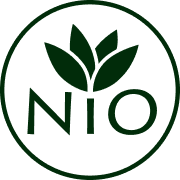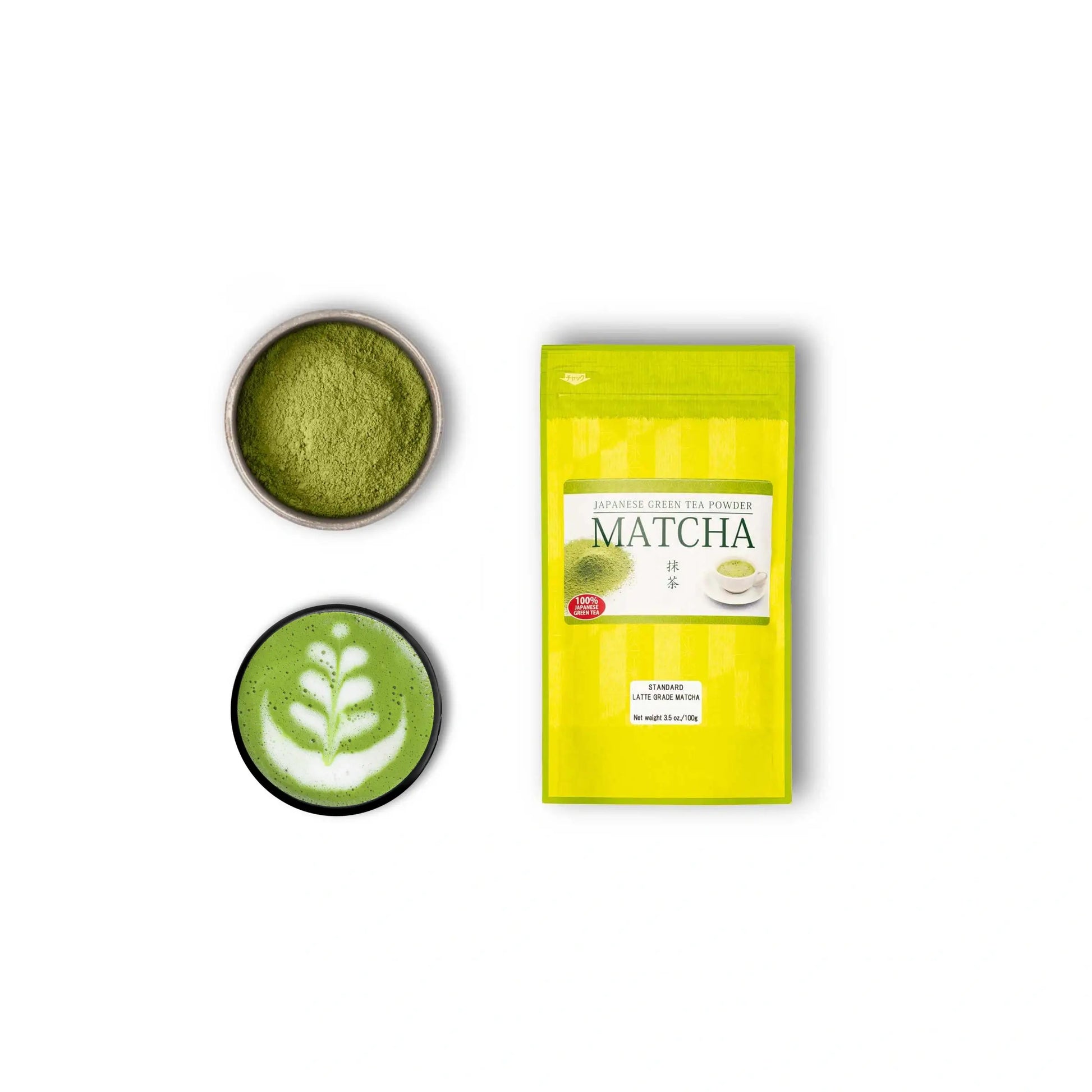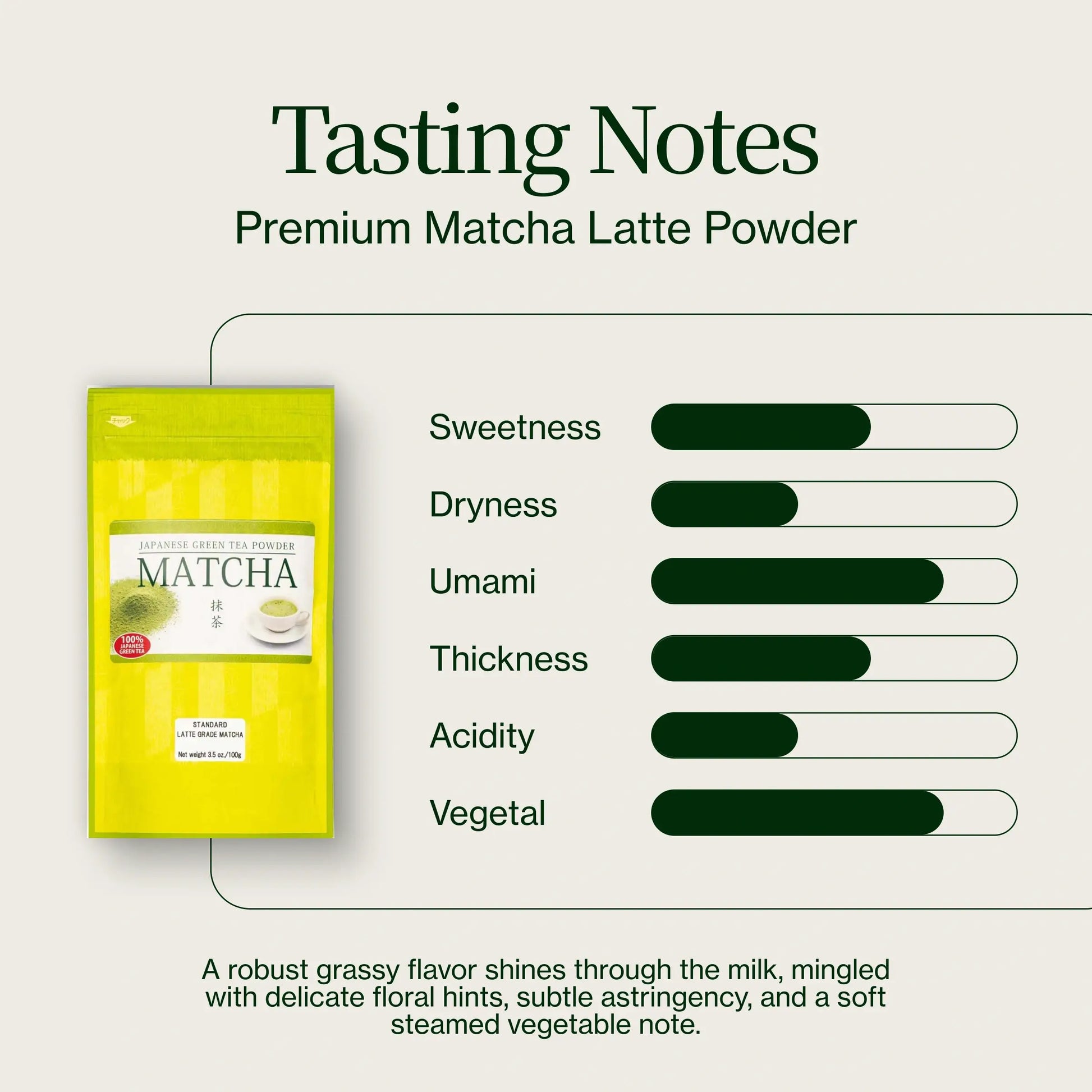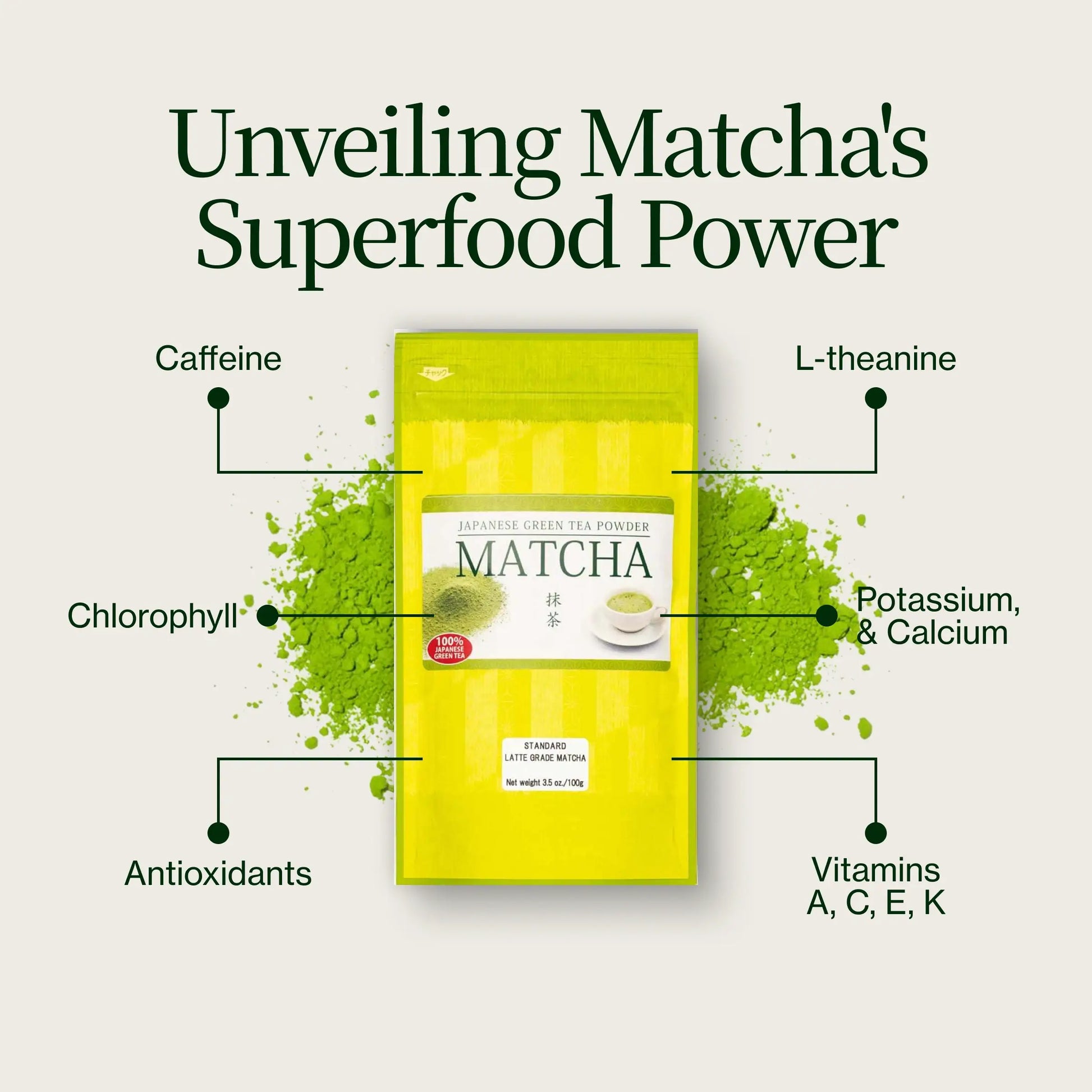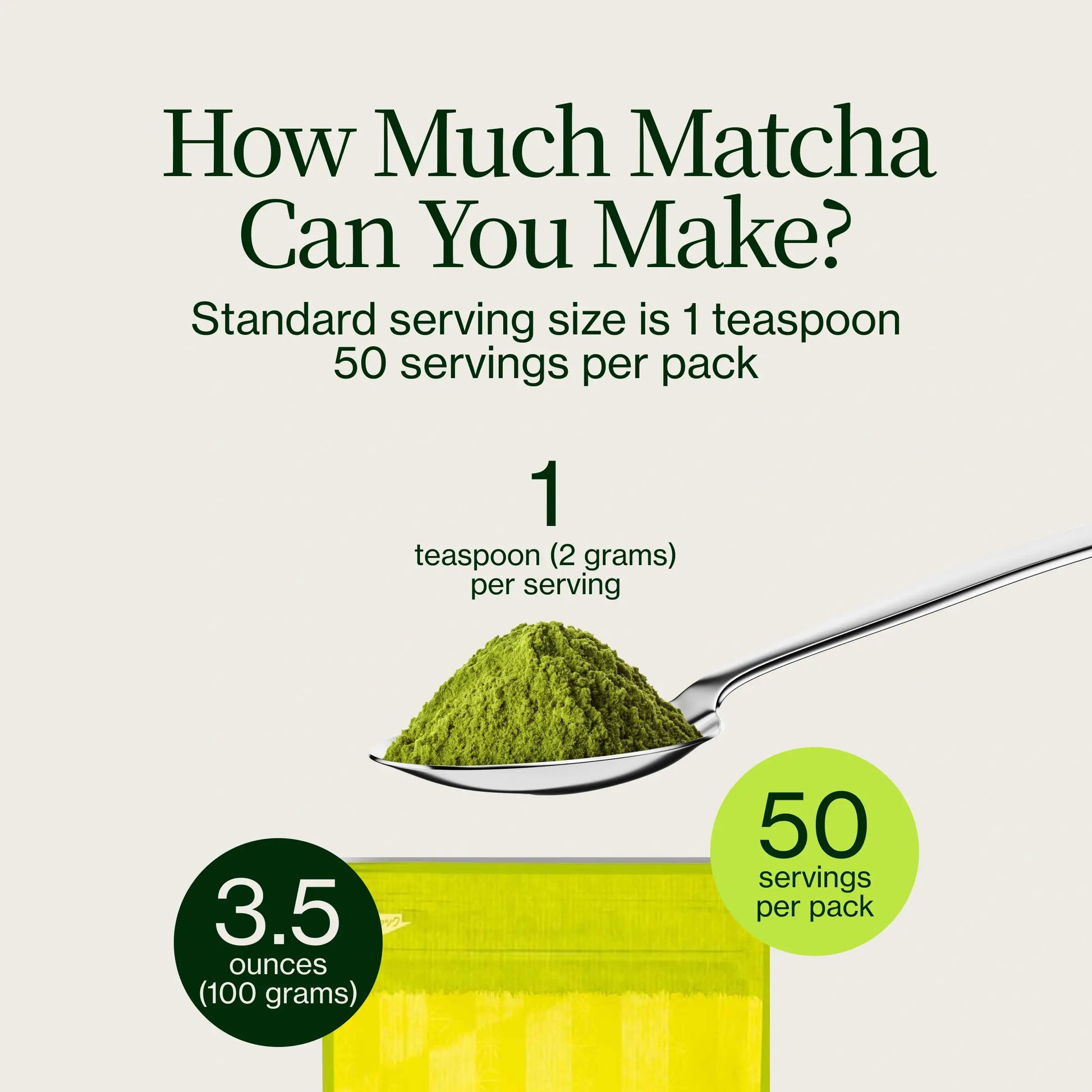Matcha Latte Premium
Matcha Latte Premium
🚚 Spedizione gratuita sopra i 49$
🍃 Senza pesticidi
🇯🇵 Provenienza diretta dal Giappone
🔐 Pagamento sicuro
😍 Ottimo servizio clienti
Text block
Impossibile caricare la disponibilità di ritiro
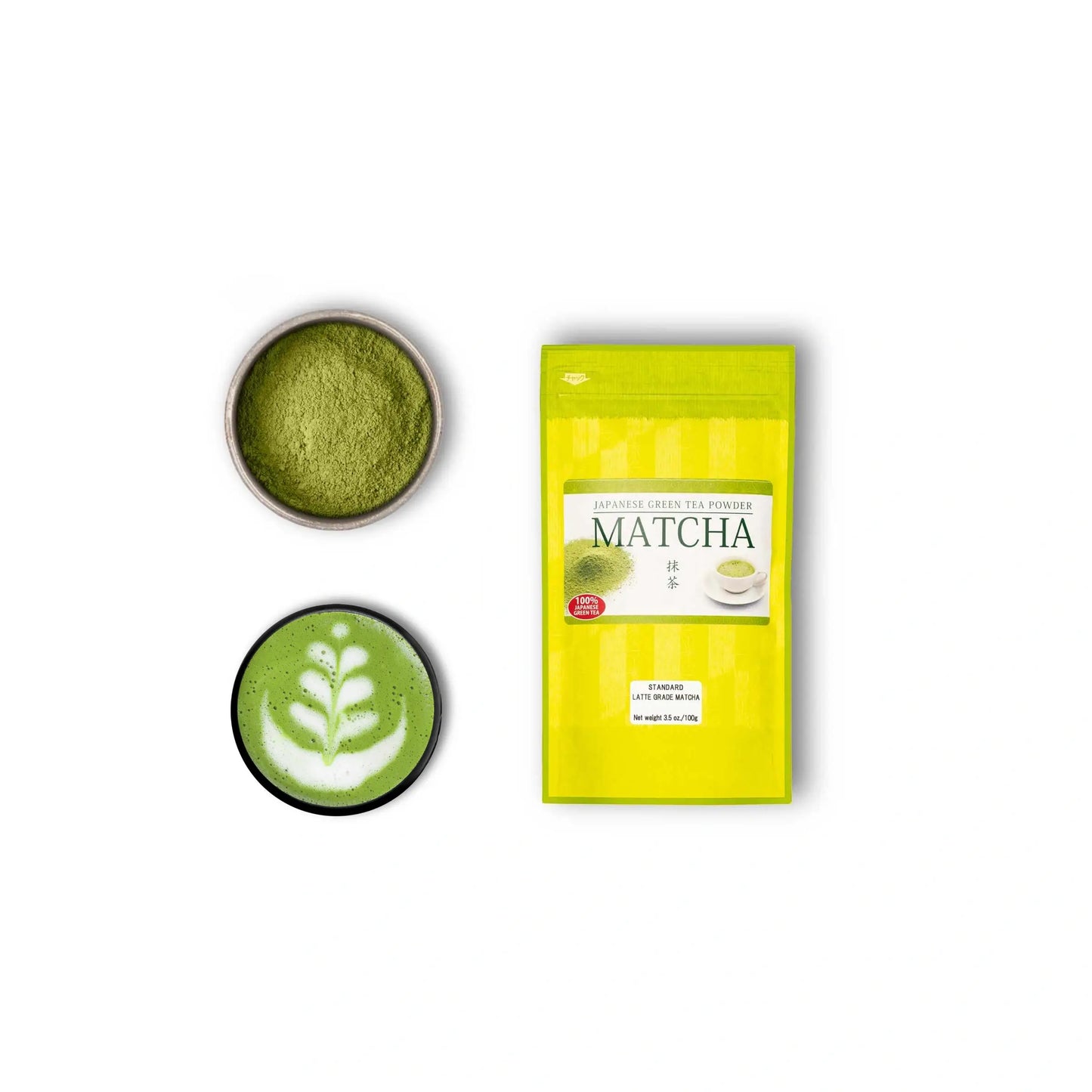
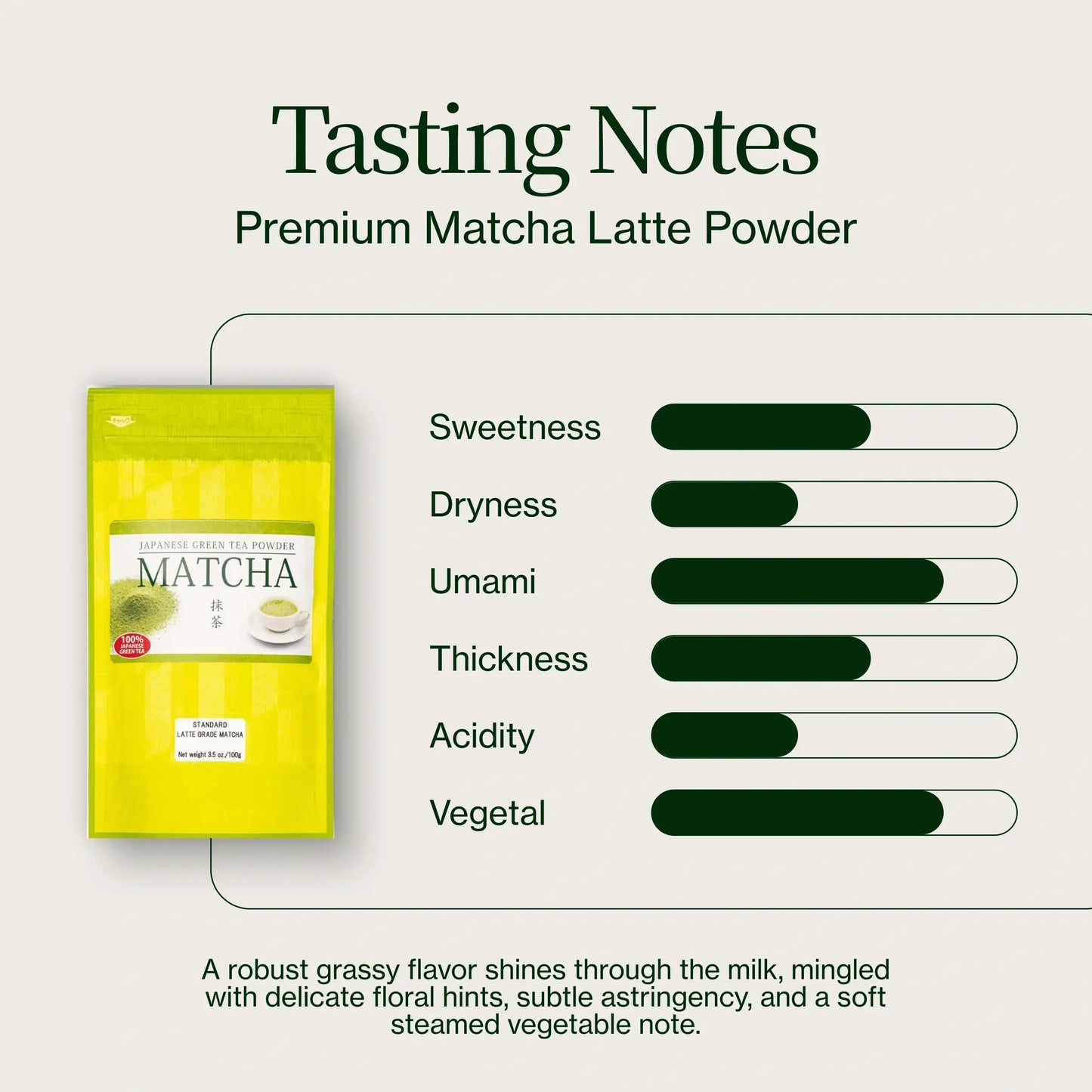
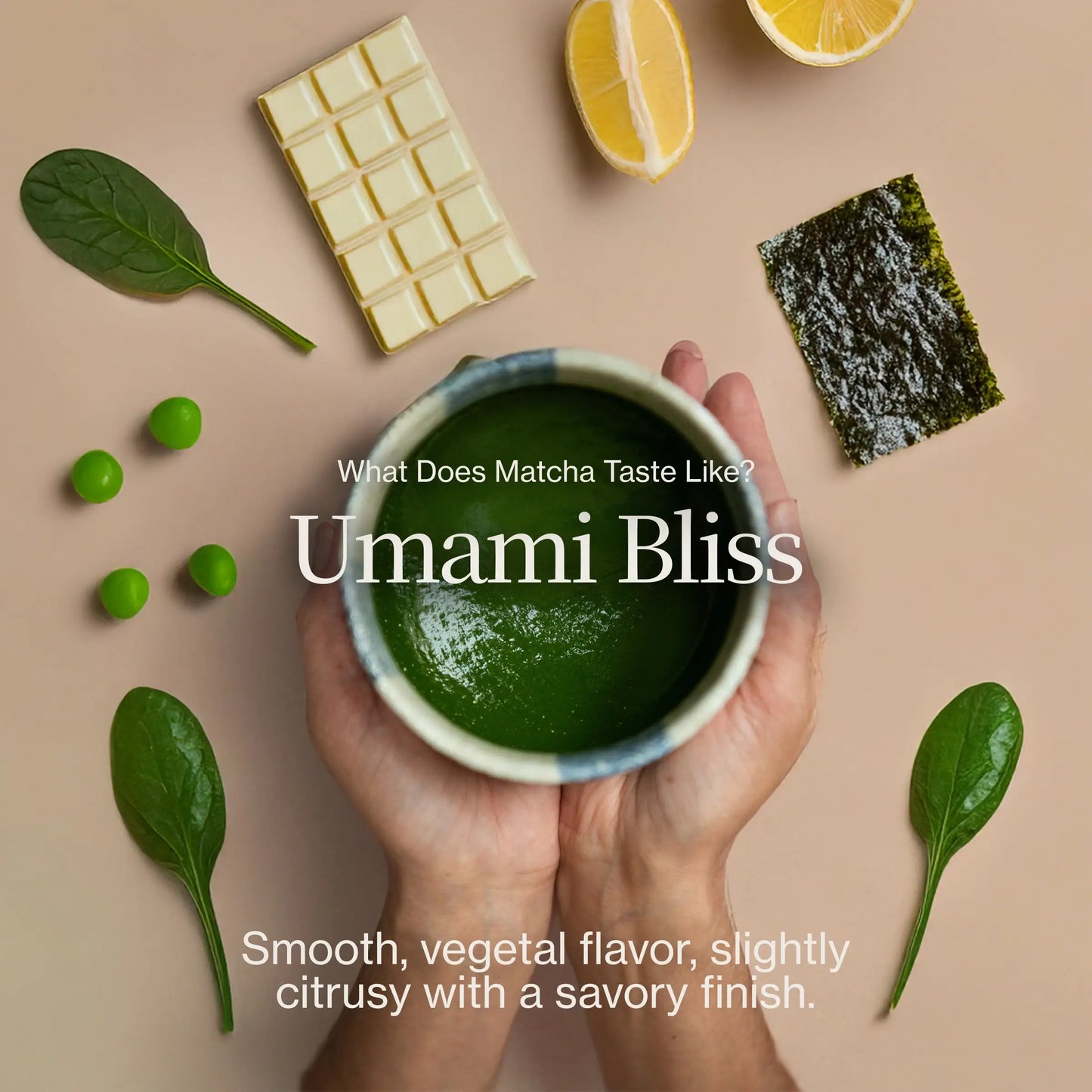
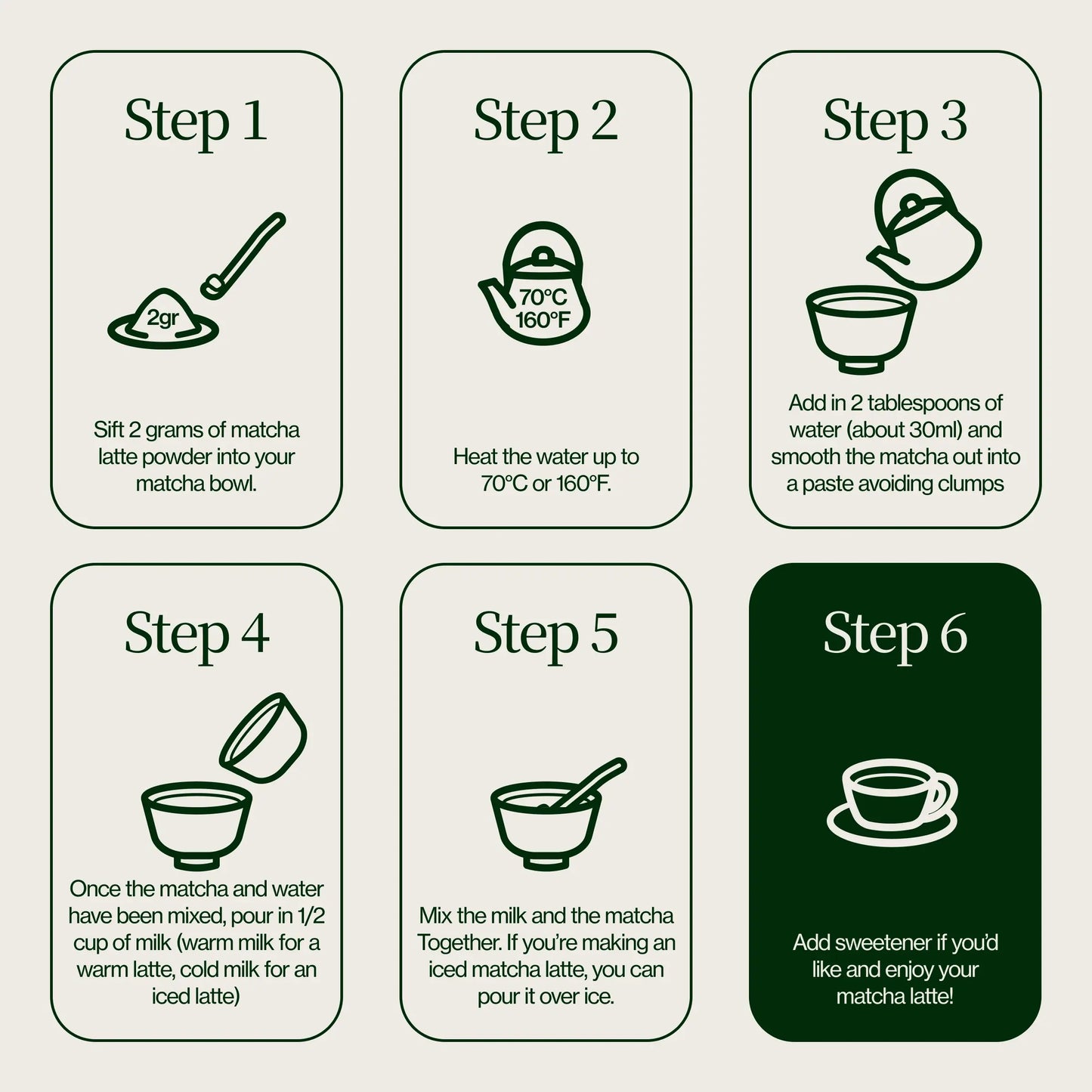
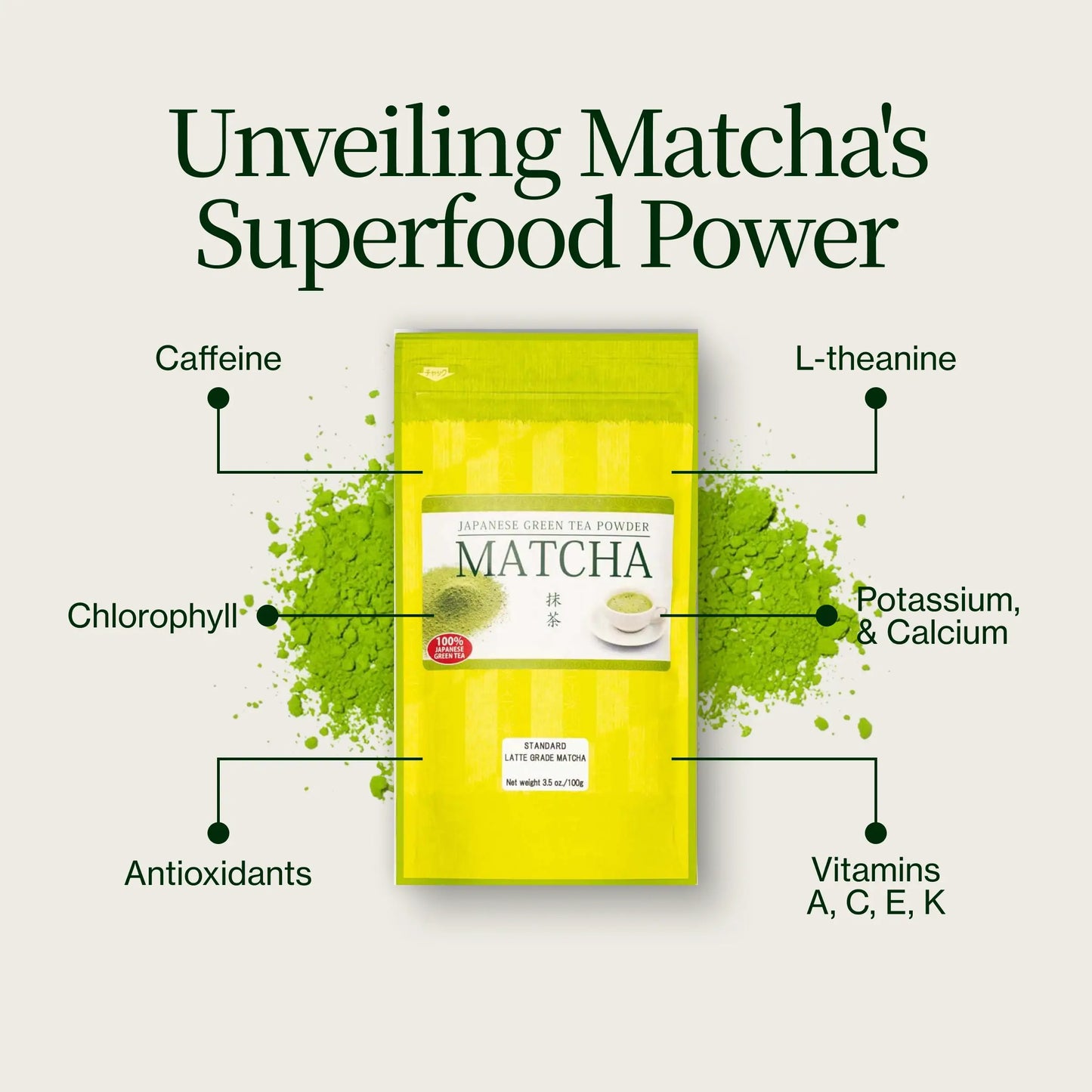
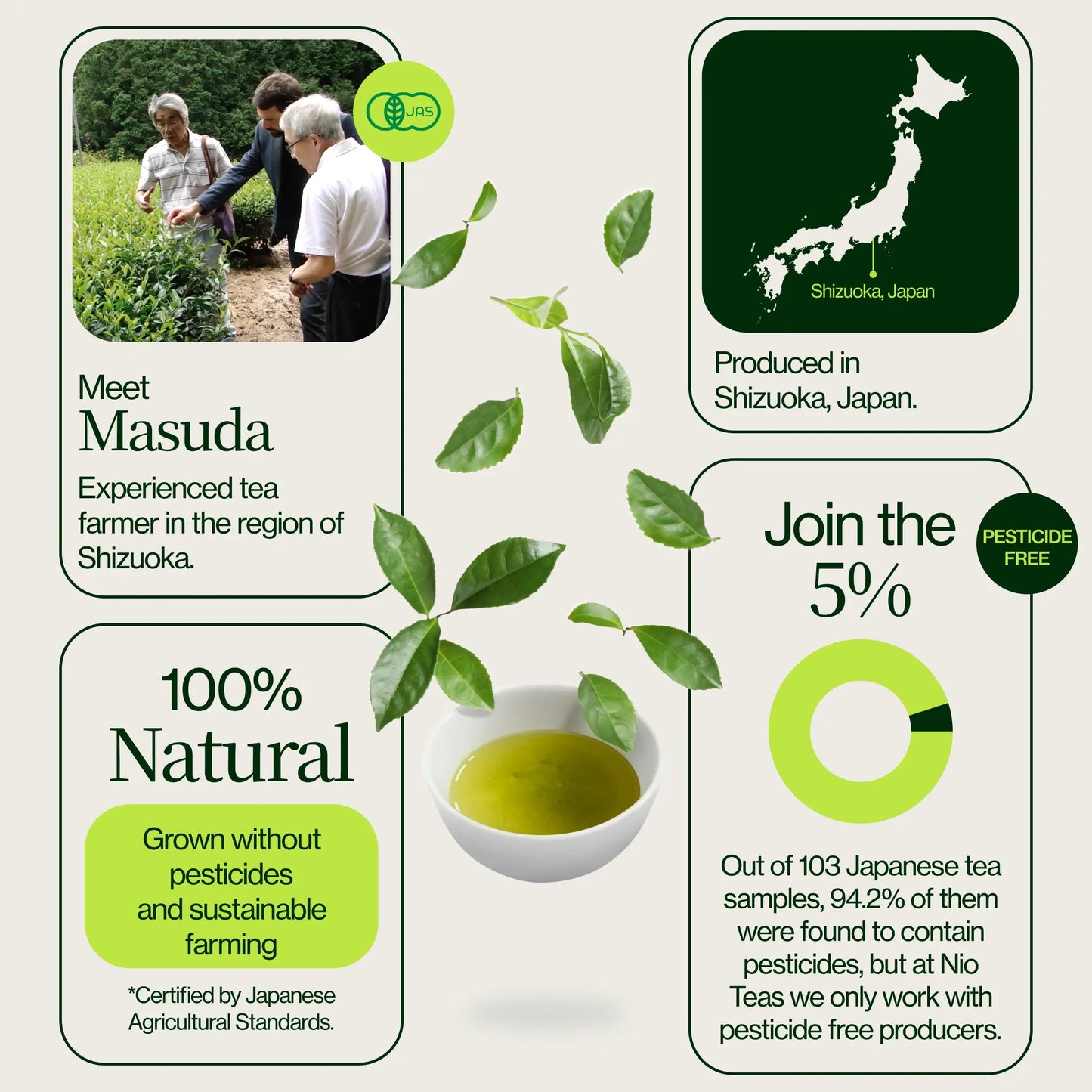
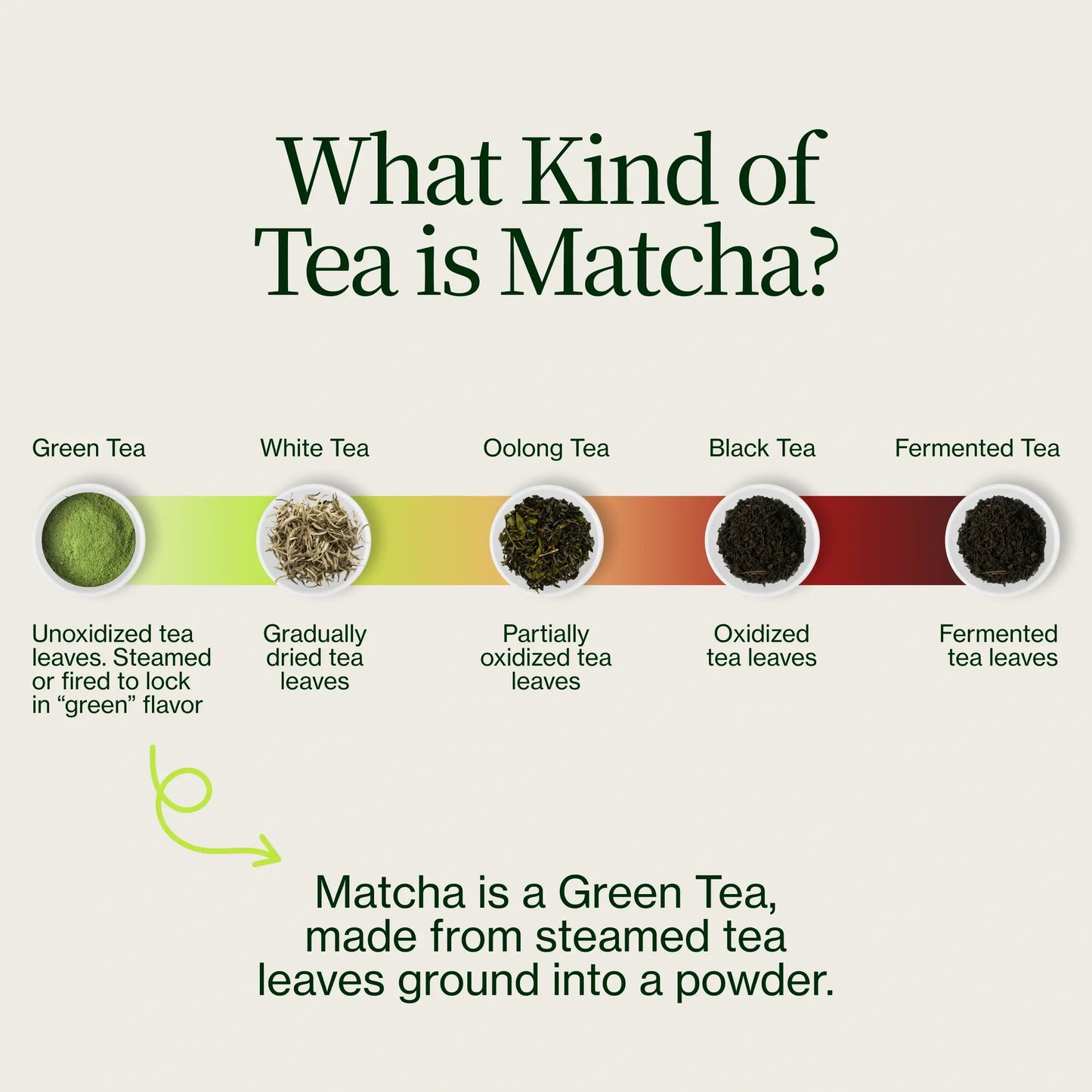
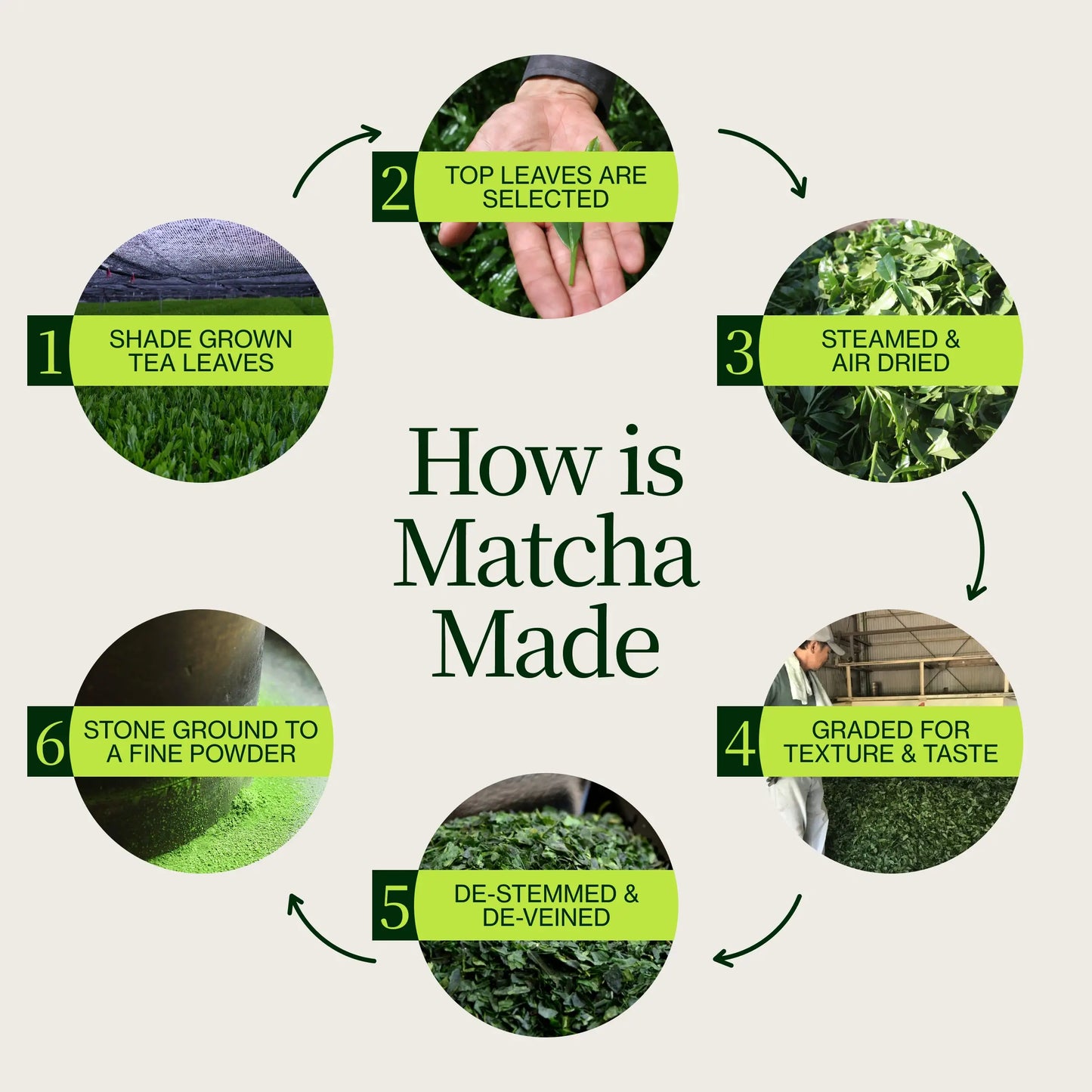
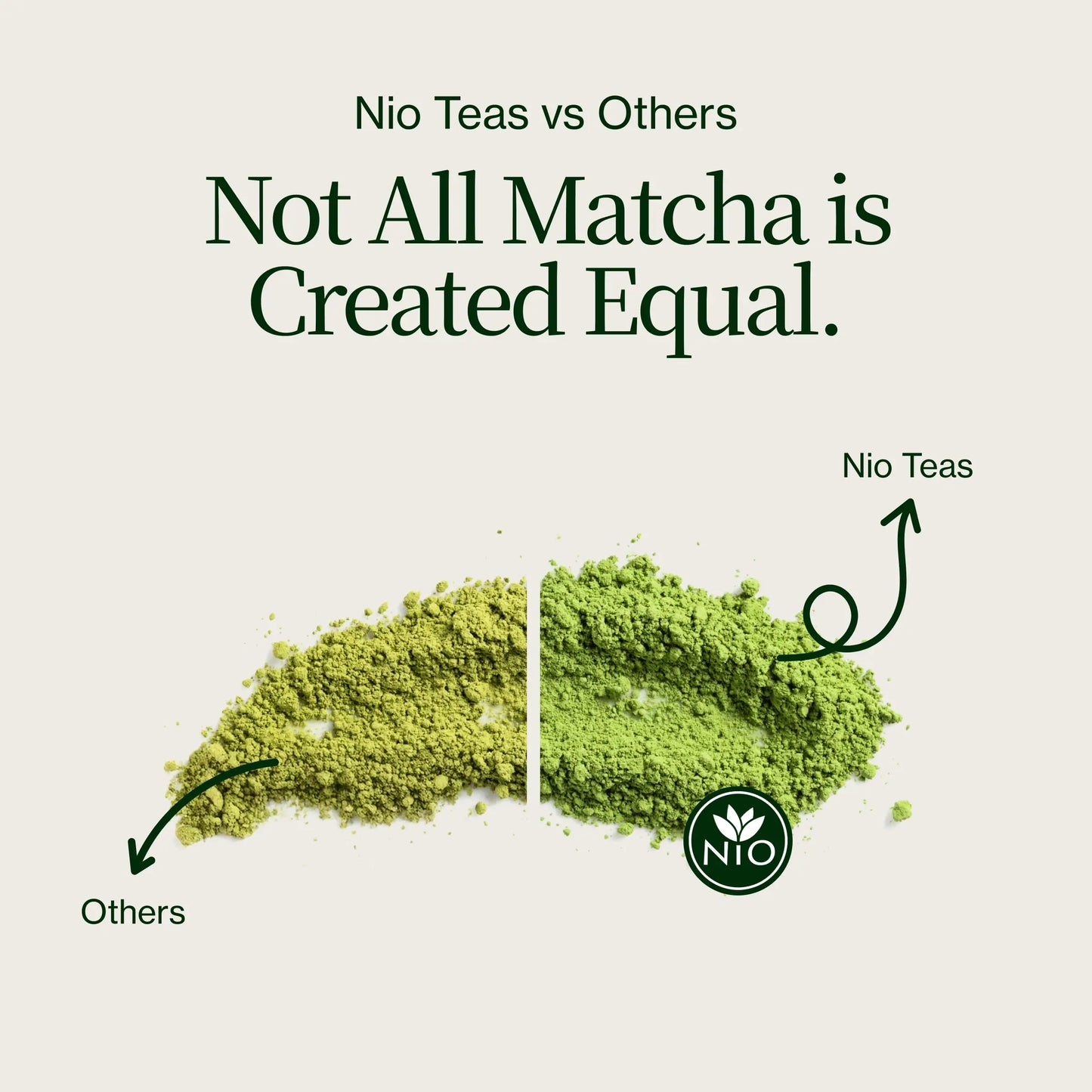
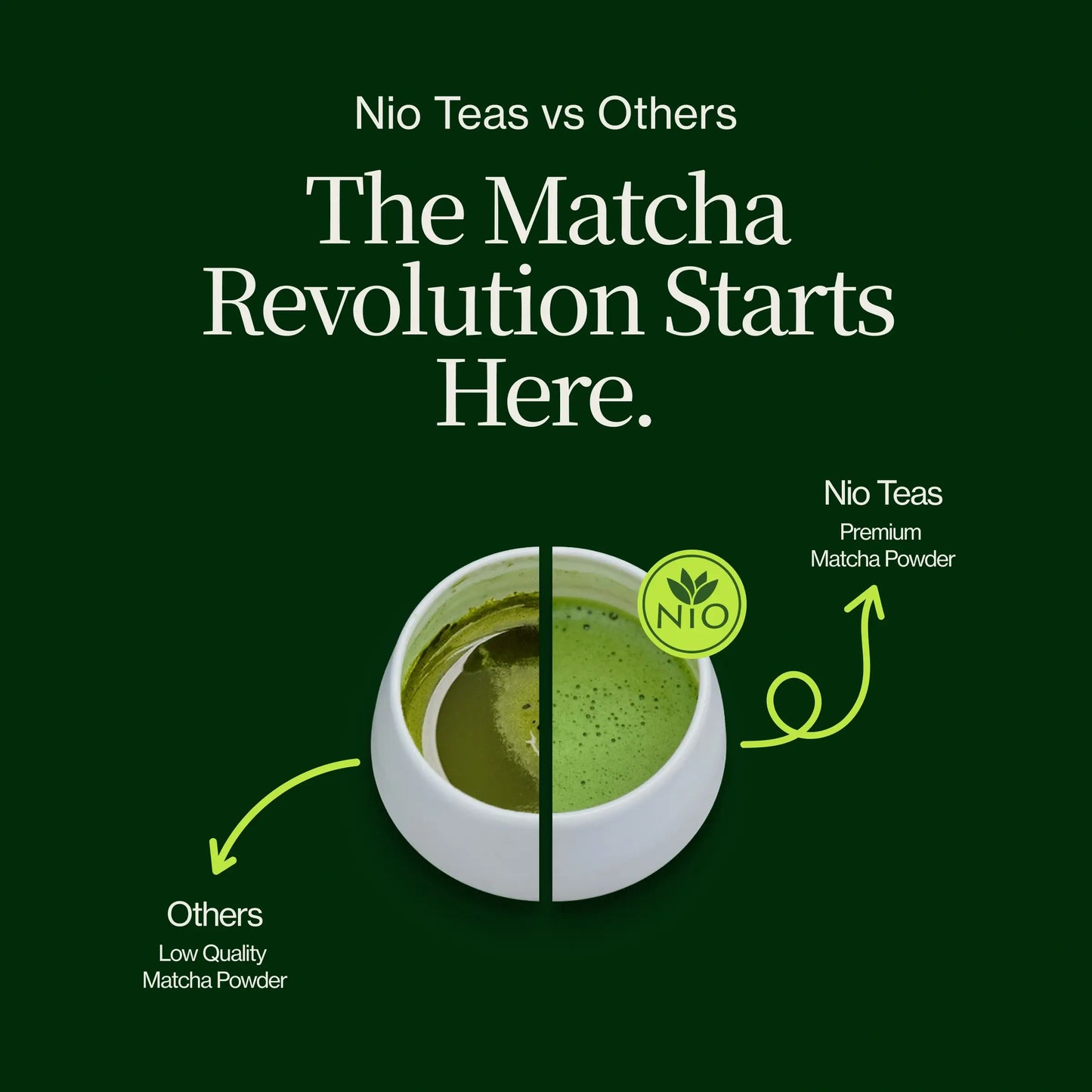
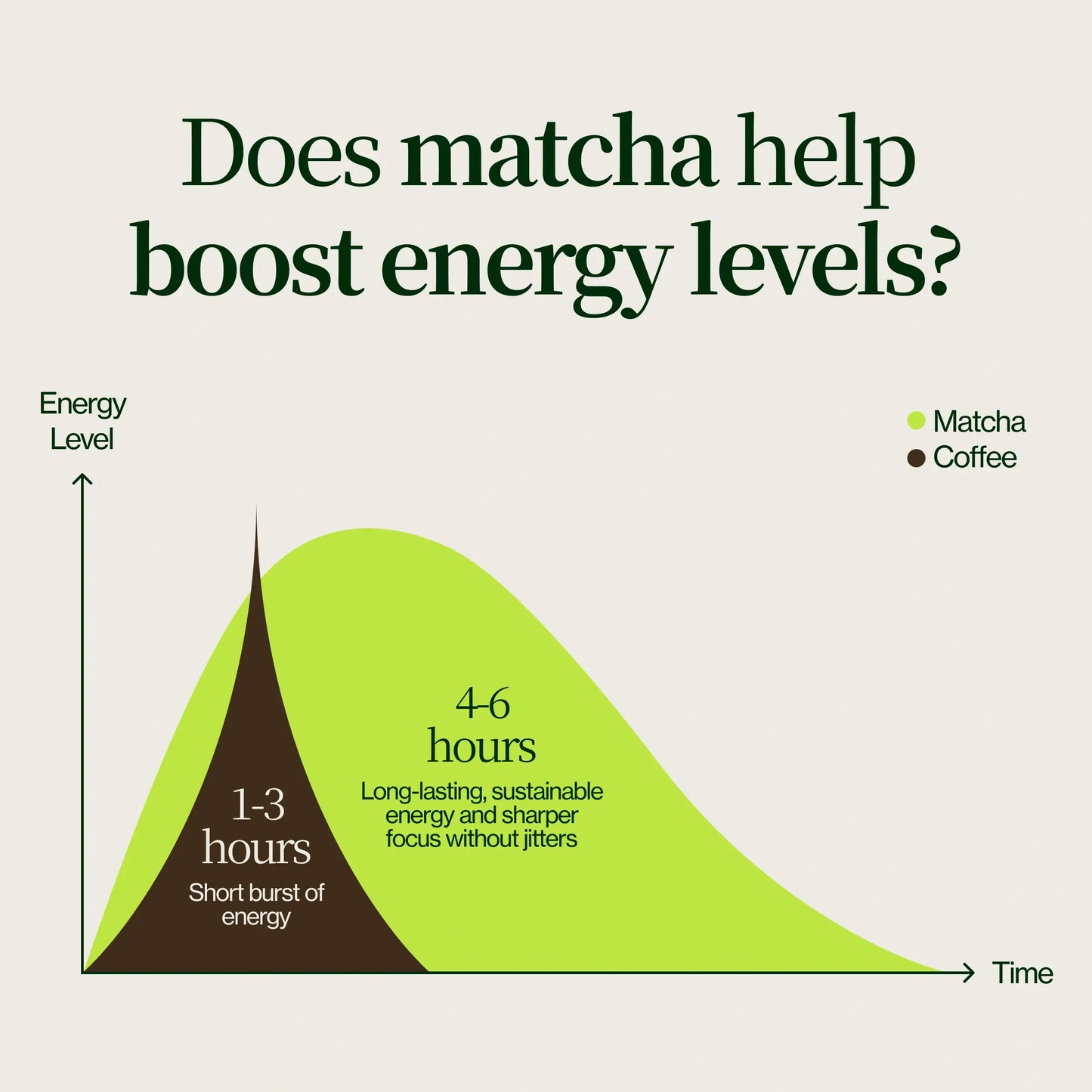
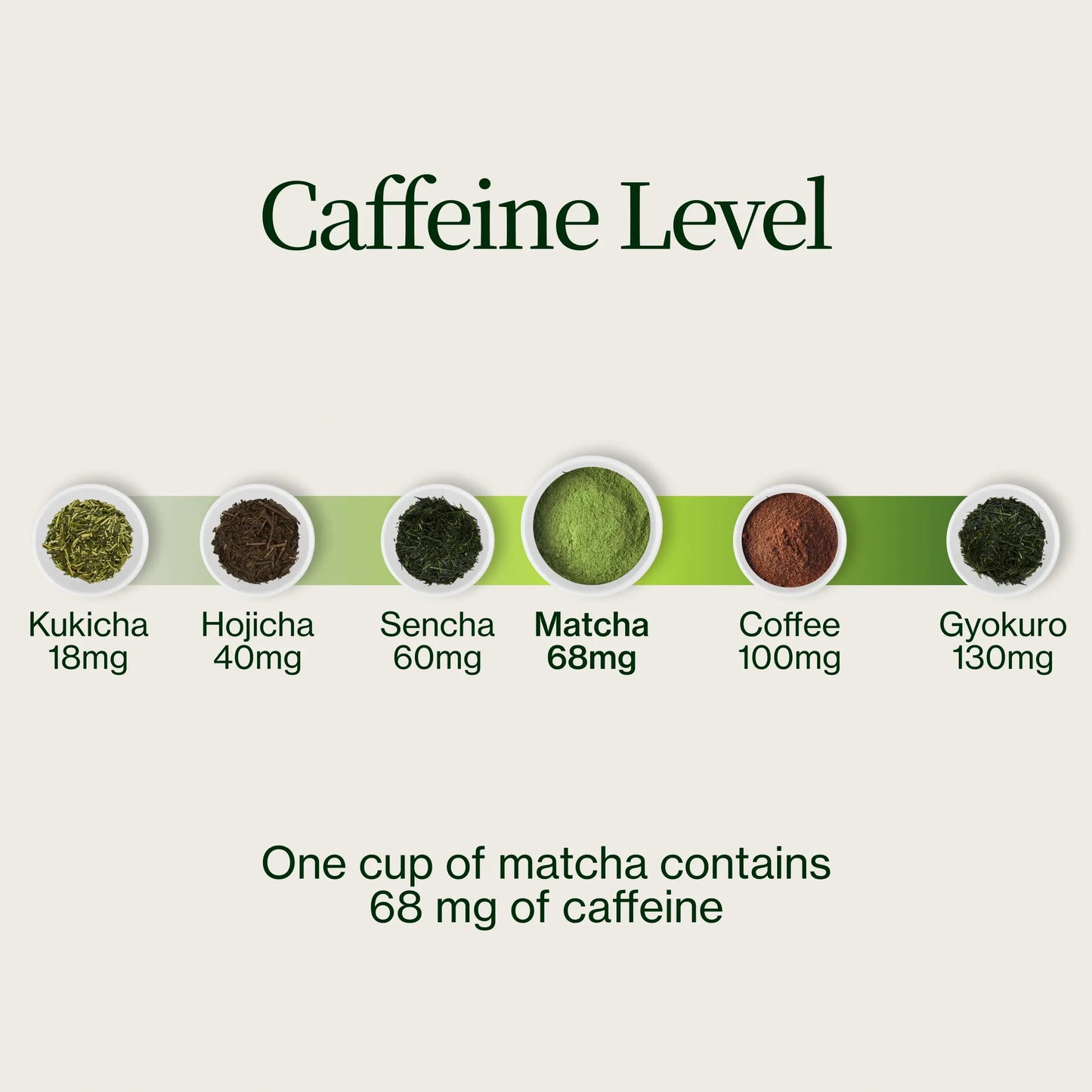
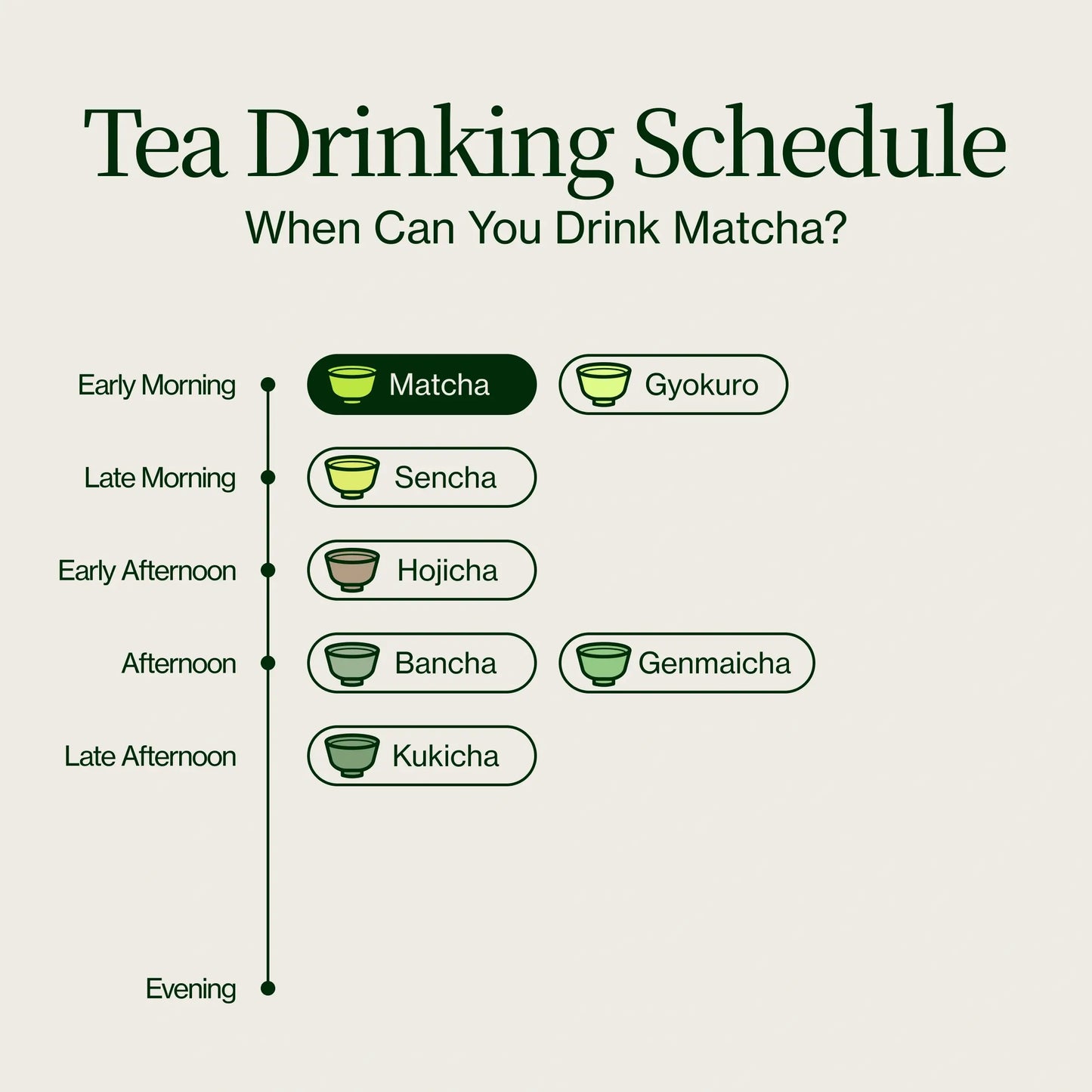
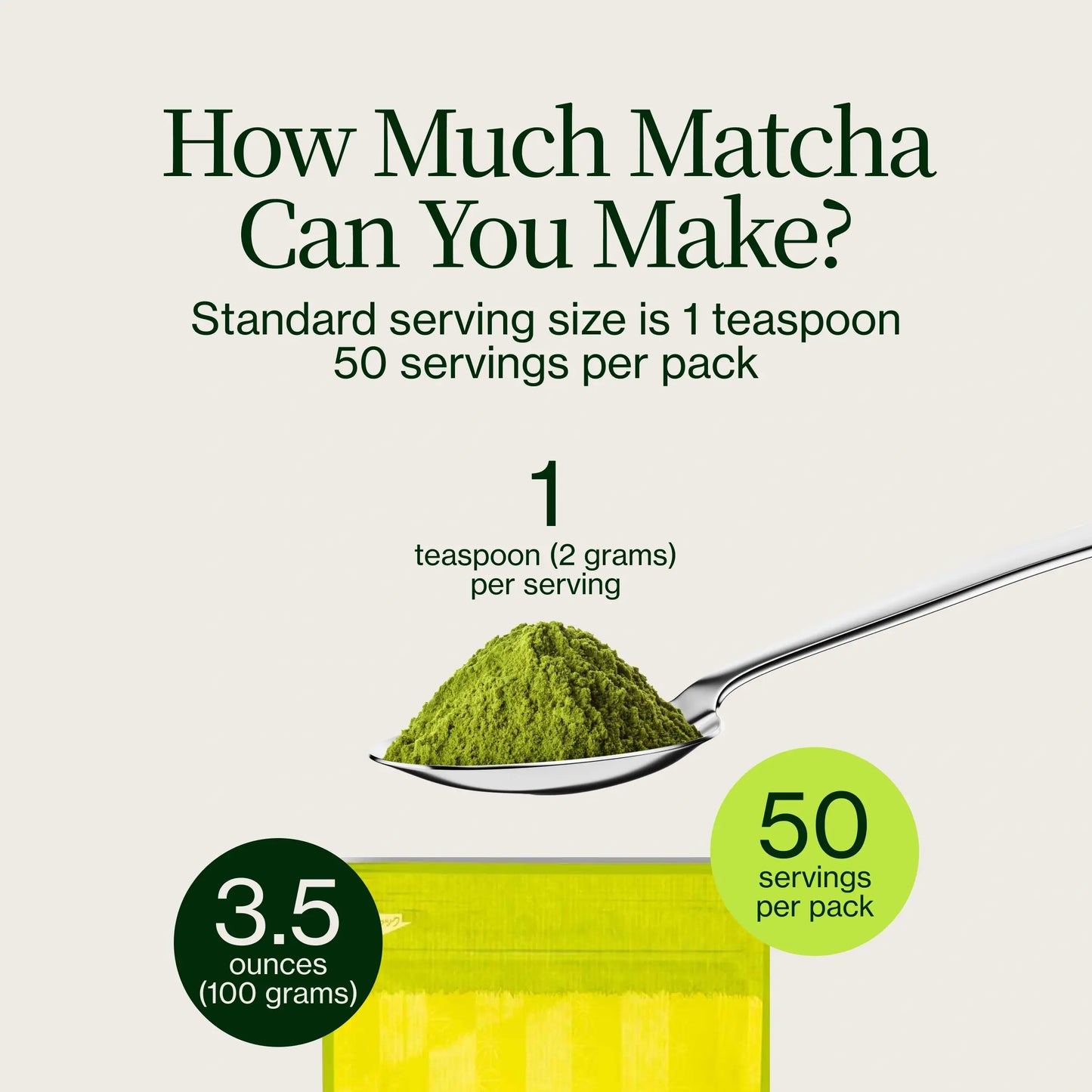
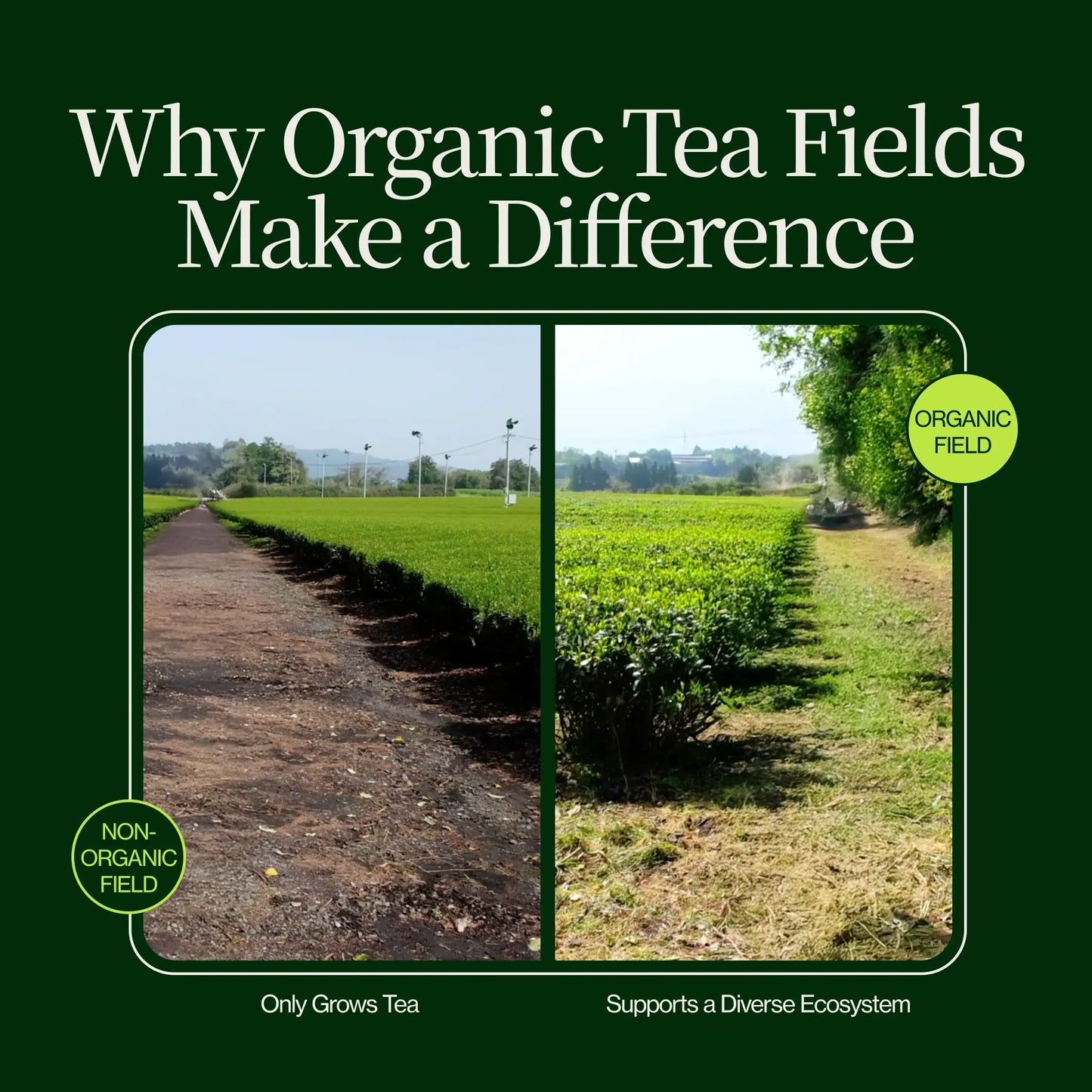
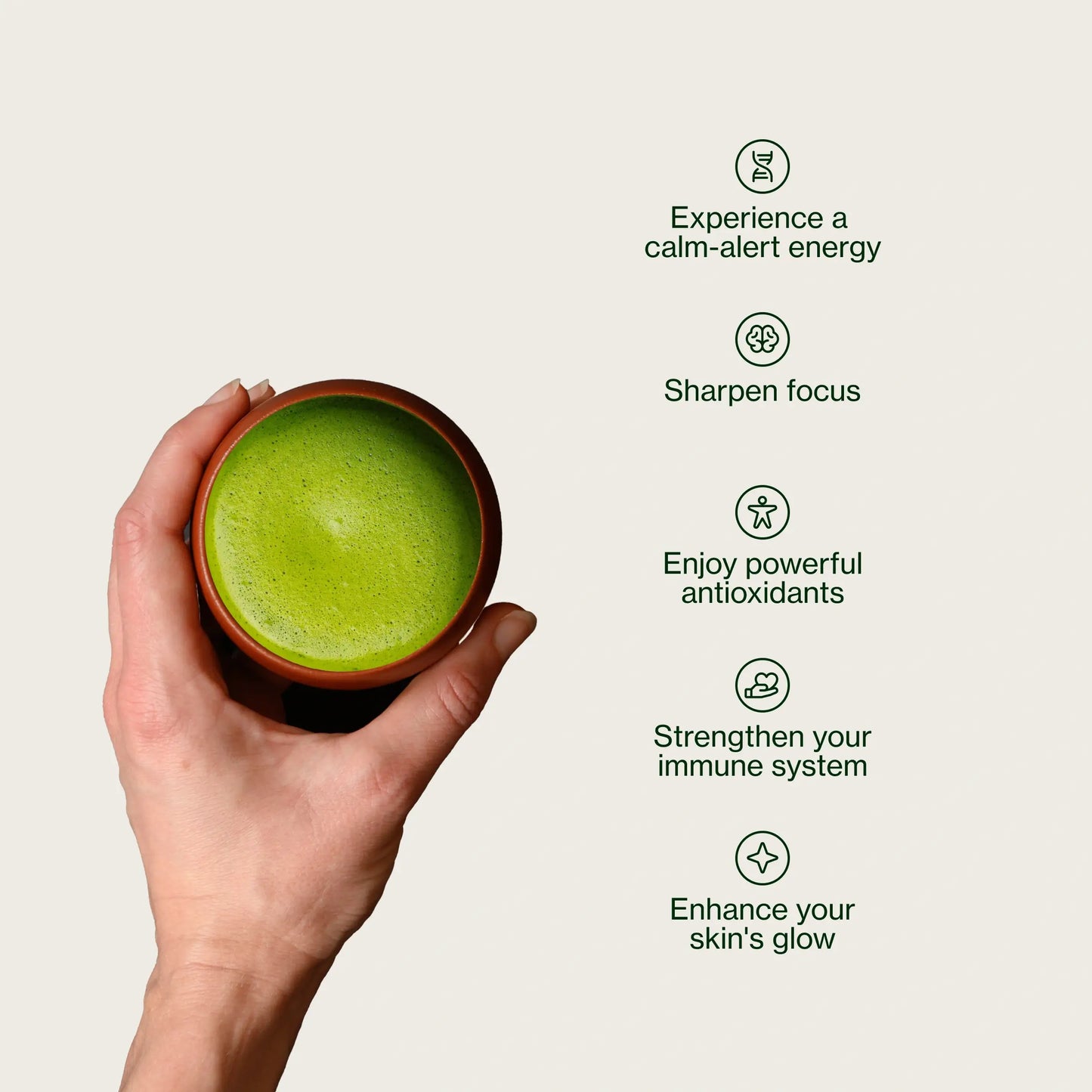
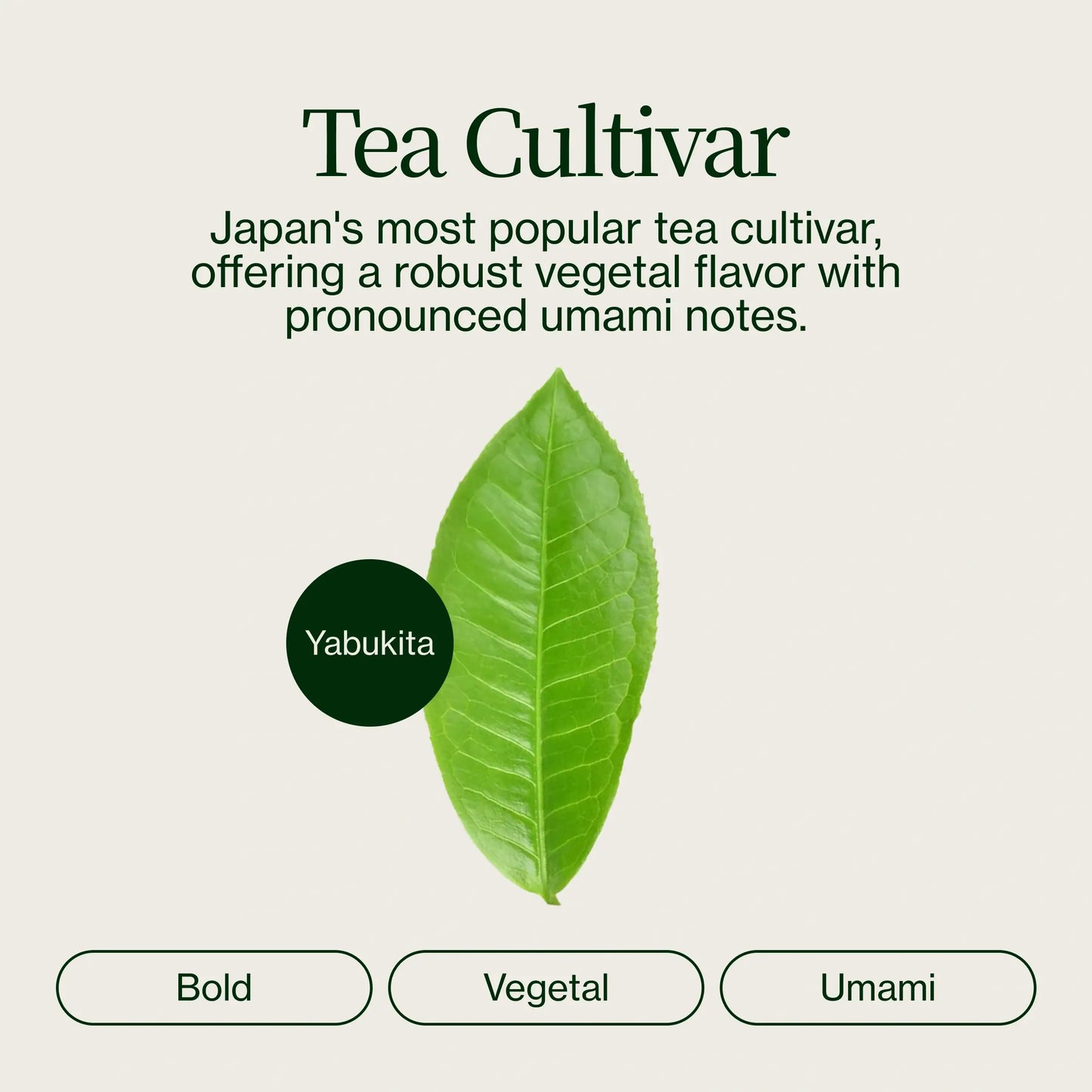
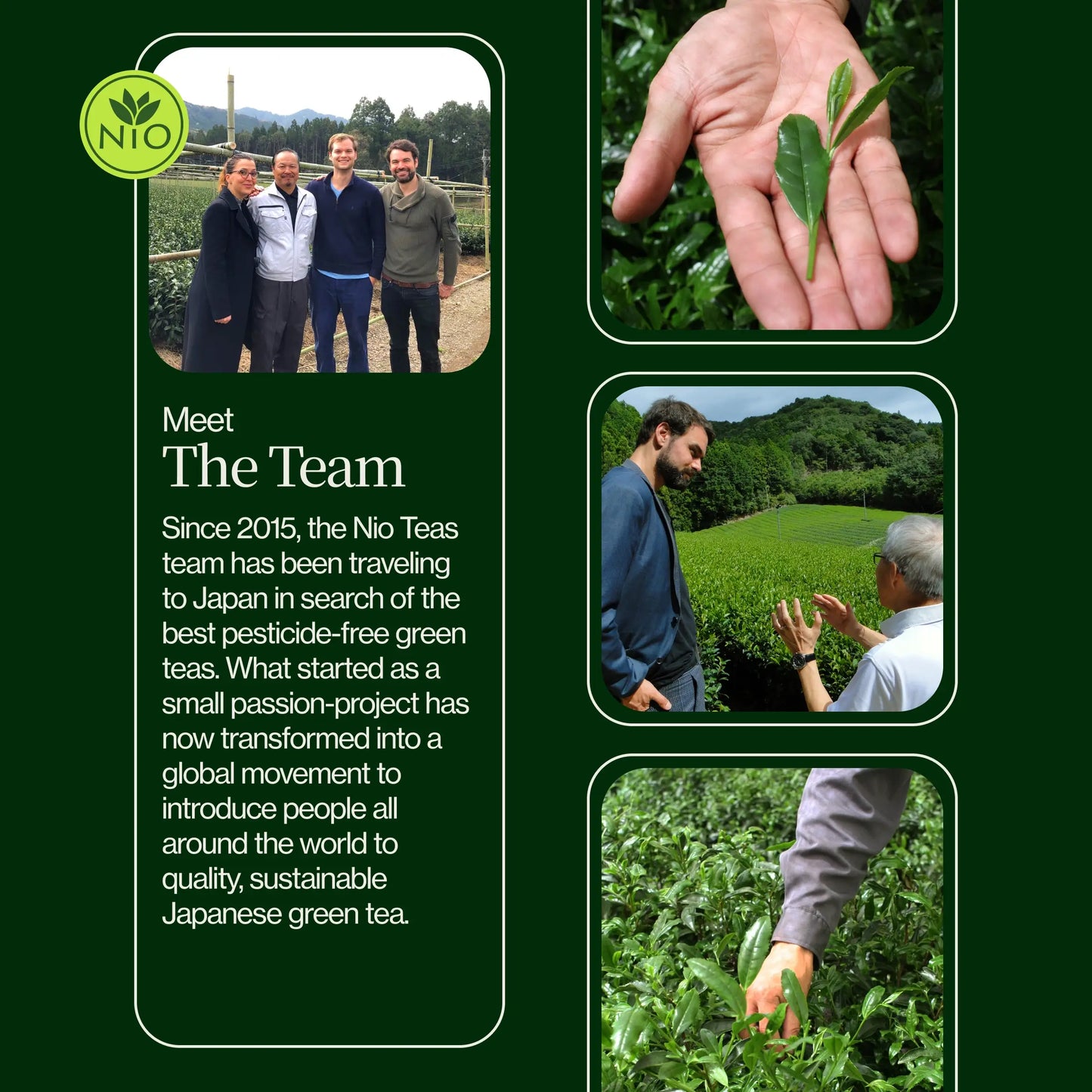
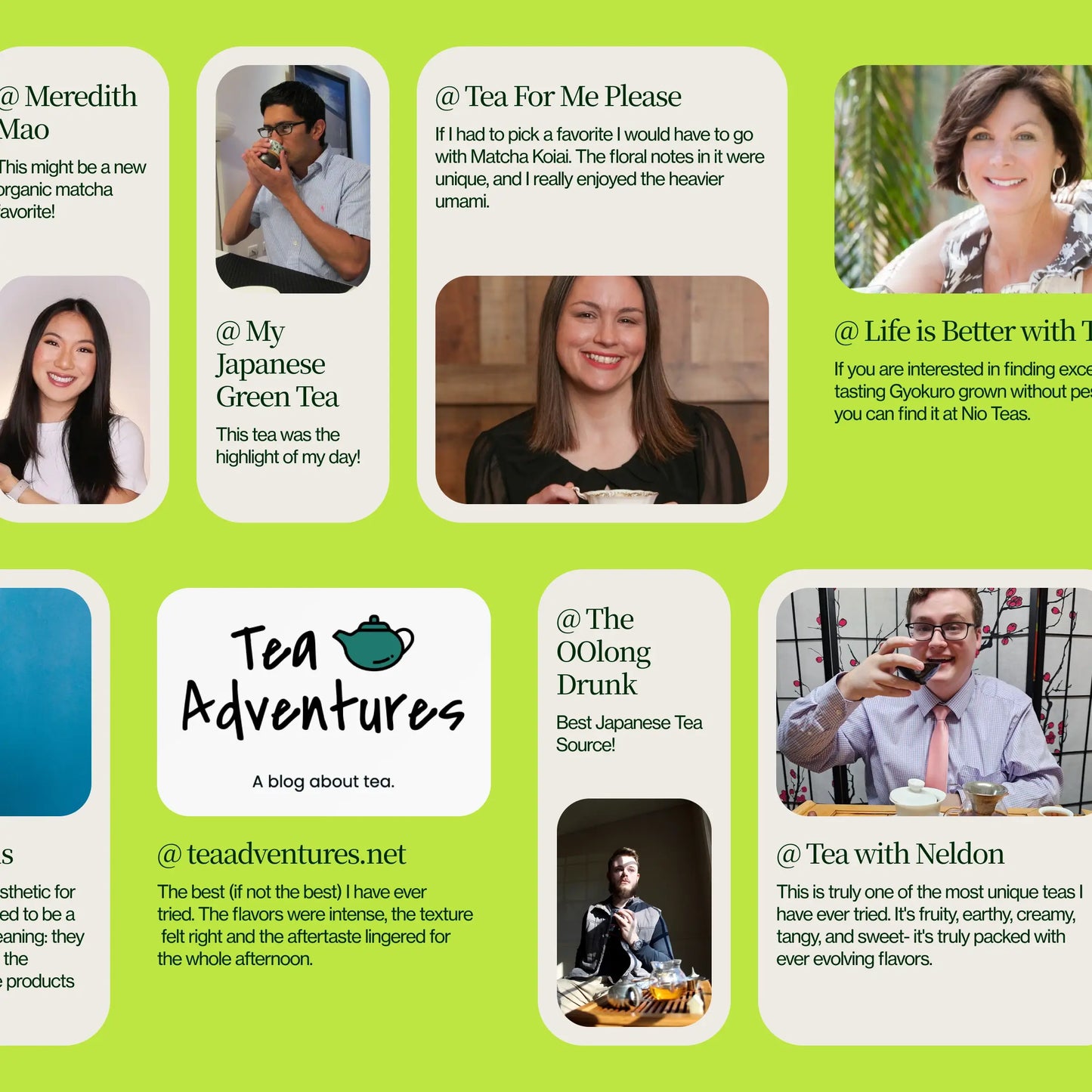
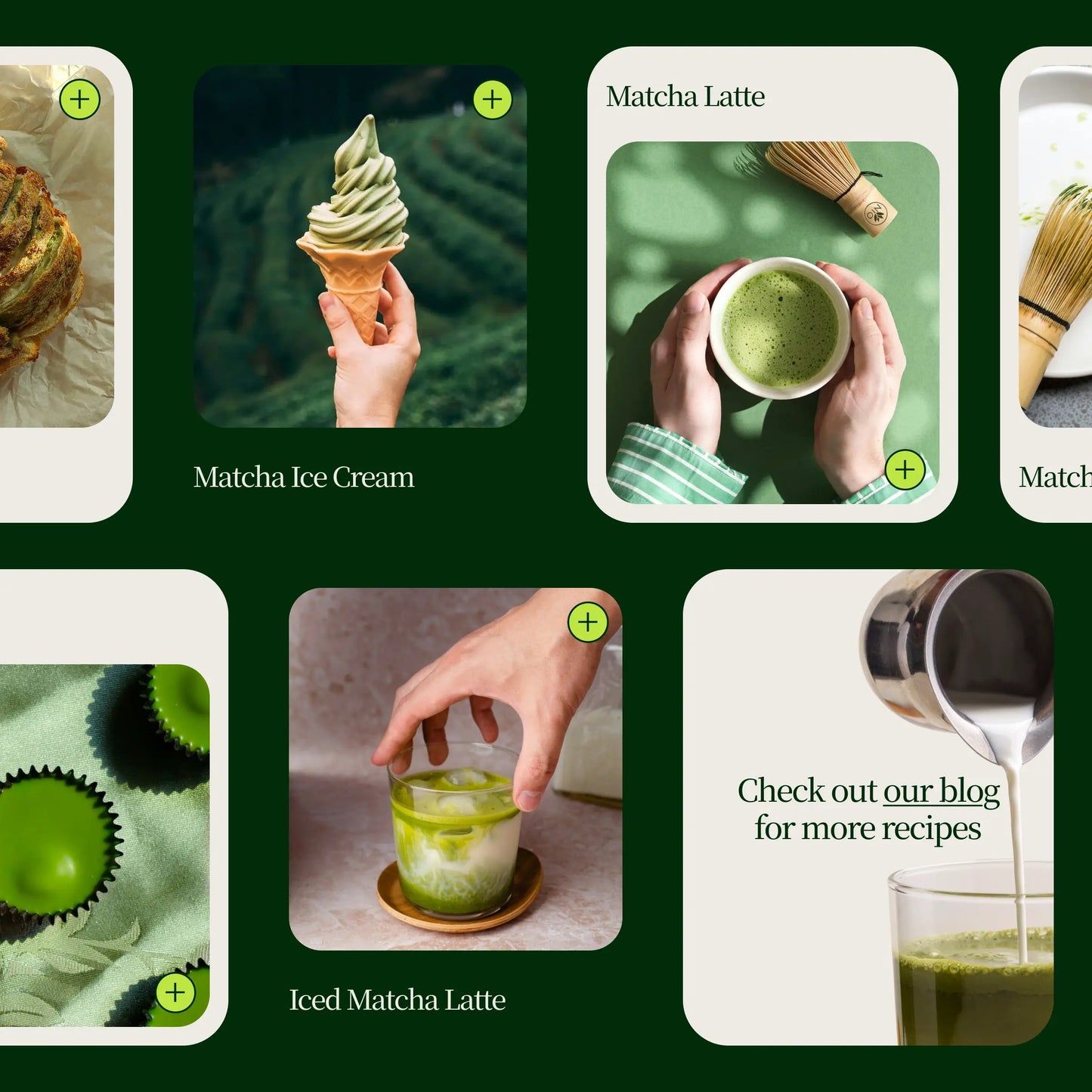
Do you prefer drinking your matcha with some nice plant milk and a little bit of sugar? The Latte Grade Matcha is the right choice for you. This matcha has a stronger taste that pairs better with cream and sugar, so you still can get a powerful matcha taste. This matcha is also more affordable, so you don't have to use it as sparingly. Throw a scoop or two in your morning latte or smoothie and get all the benefits of green tea! Like our other teas, this matcha was also grown without the use of pesticides or chemicals and it is produced by a small family-owned farm in Shizuoka.
What You'll Get
🍃 JAS Organic Green Tea
🍃 Calming, Relaxing Theanine
🍃 Higher Caffeine Content
🍃 Long Lasting Energy Throughout the Day
🍃 Naturally Gluten Free and Vegan
🍃 Complex Flavor Profiles
What it Tastes Like
🍵 Strong, Grassy Flavor
🍵 Light Floral Notes
🍵 Hint of Astringency
🍵 Steamed Vegetable Notes
How Much Tea Does it Make?
This packet contains 100 grams of powdered tea, enough to make 50 Matcha Lattes
Meet the Farmer
This tea comes to us from the farmer Mr. Masuda in Makinohara, Shizuoka. Mr. Masuda. The company has been producing tea for 5 generations and they were even selected to grow tea for the Emperor and the royal family of Japan.
About the Farm
This tea is produced on the Makinohara plateau in Shizuoka. The farm is quite large, with a few different microclimates that are perfect for different kinds of green tea. We visited the farm in the Summer of 2018 to learn more about tea cultivars and taste the different types of teas grown here.
How to Brew it
Add 2 grams of matcha to a bowl and then pour in 100-150ml of 160-175F water. You can then scrape off the sides of the bowl and begin whisking with you matcha whisk
Very Popular as a Gift
Our fans like to give away our teas on birthdays, weddings and other special days! Our samplers are highly recommended as gifts!
Always Pesticide Free
We make sure to only source teas from reputable farmers that grow tea without the use of conventional pesticides or chemicals. We meet with the farmers in person and tour the fields and facilities. We look at the sustainability of the field, the attention to detail and quality control of the facility and of course the taste of the tea.
